Share
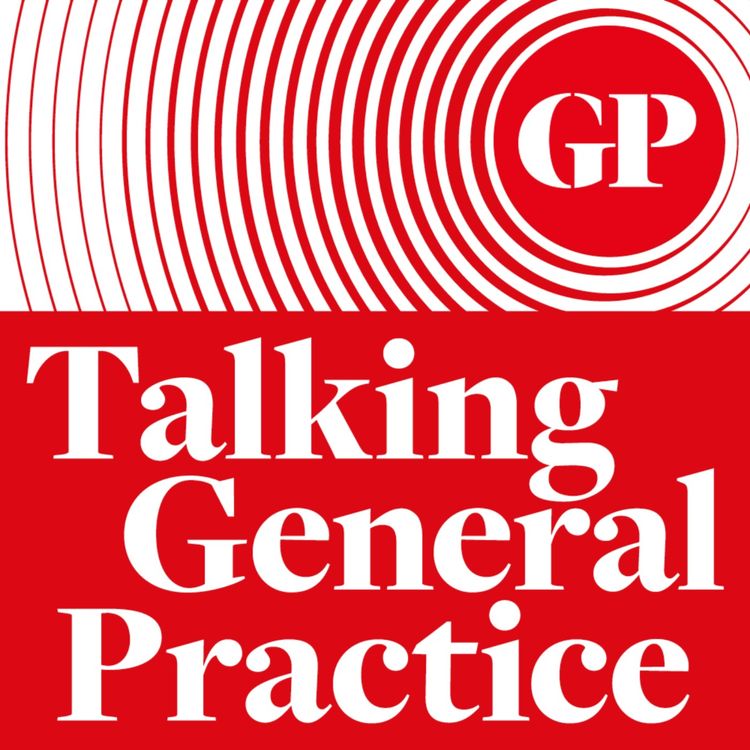
Talking General Practice
How an initiative from Brazil could help general practice and improve outcomes
Emma speaks to Dr Matt Harris and GP Dr Connie Junghans Minton about an initiative involving community health and wellbeing workers that has been adopted in Connie’s practice in London and is also being rolled out to practices in other parts of the country.
It is based on a long-running scheme from Brazil, where evidence shows it has made a significant difference in terms of public health measures and health outcomes. Community health and wellbeing workers have already had some impressive results in the short time they have been working in London.
Matt, who is now a clinical senior lecturer in public health medicine at Imperial College London saw the scheme in action first hand when he worked as a GP in Brazil and it was his idea to bring the model to this country.
In this interview, he explains how the scheme works and how it can help GPs. Meanwhile Connie, who is also senior clinical fellow in primary care at Imperial College, discusses how her practice introduced community health and wellbeing workers for some of their most deprived patients and results from the initial pilot.
This episode was presented by GPonline editor Emma Bower. It was produced by Czarina Deen
Useful links
Information on the community health and wellbeing worker programme is on the NAPC website here
More episodes
View all episodes
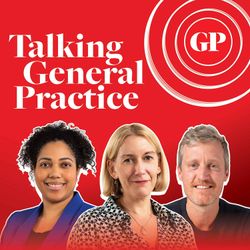
20. GP contract predictions, uncertainty over neighbourhoods, tackling the GP jobs crisis
39:10||Season 6, Ep. 20Emma and Nick talk about some key news stories from the end of December and the start of this year linked to issues where we are expecting some major developments in the early part of 2026.They talk about the 2026/27 GP contract, what the BMA and RCGP have said the contract needs to address, as well as some of their own predictions about what could happen.They look at what comes next with neighbourhoods and how general practice can ensure it is protected against big changes that could be coming down the track.And they discuss the impact the ongoing jobs crisis is having on the profession in England and what the government could do to address this in both the GP contract and the forthcoming workforce plan.This week’s good news story is about the GPs and other general practice staff awarded new year honours.This episode was presented by GPonline editor Emma Bower and deputy editor Nick Bostock. It was produced by Czarina Deen.Submit your case studies highlighting good work in your practice to GP Business here. Useful linksGPs, practice nurses and practice manager recognised in New Year HonoursBMA reveals GP contract demands for 2026/27New RCGP chair outlines college response to GP contract consultationGPs forming huge companies to bid for neighbourhood contractsRegistrars delay qualifying as GPs amid 'bleak' job market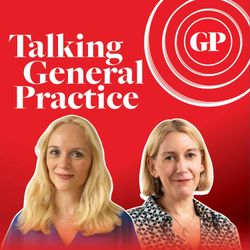
19. New RCGP chair Dr Victoria Tzortziou Brown on how to restore joy and pride in general practice
35:23||Season 6, Ep. 19Emma speaks to the new chair of the Royal College of GPs Dr Victoria Tzortziou Brown, who took on the post at the end of November.Victoria is the first international medical graduate to chair the college and has worked as a GP in East London for 20 years.In this conversation, Victoria sets out her priorities for her time as chair, including defining the role of general practice in a changing healthcare system, tackling workload pressures and ensuring new technology supports GPs in practice - and why the college is running a consultation with members on these key issues.She explains why she wants to bring hope back to the profession and help make general practice a sustainable and fulfilling career once again and highlights the importance of the college championing continuity of care as part of this.Victoria also talks about the college's relationship with the government, her views on plans for a neighbourhood NHS and the current jobs crisis facing GPs, as well as the college's ongoing campaign to secure better visa rights for IMG GP registrars.This episode was presented by GPonline editor Emma Bower. It was produced by Czarina Deen.Useful linksDetails of the RCGP consultation on its key prioritiesLow pay could force IMG GPs to quit UK, doctors warnQuarter of GPs use AI but 'wild west' rollout sparks safety fearsNuffield Trust/RCGP report on how GPs are using AI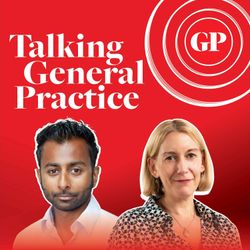
18. Super partnerships, AI regulation and the future of general practice
32:09||Season 6, Ep. 18Emma speaks to Dr Vish Ratnasuriya, a GP partner and the elected chair of Our Health Partnership, one of the UK’s largest super partnerships. Vish was also recently appointed as a member of the newly formed National Commission for the Regulation of AI in Healthcare.In this episode, Vish explains how Our Health Partnership;s ‘decentralized’ super partnership model helps support practices while retaining local autonomy. He discusses the advantages of working at scale and the shift towards neighborhood working - and shares his views on why general practice needs to lead on this work and the opportunities for moving more care out of hospitals and into the community.He also talks about the huge role technology and AI will play in the future of the NHS. Vish explains what the new national commission aims to achieve and the vital importance of establishing clear rules on liability and safety for new technologies.This episode was presented by GPonline editor Emma Bower. It was produced by Czarina Deen.Useful linksOur Health PartnershipNational Commission for the Regulations of AI in HealthcarePrimary Care AcceleratorWest Midlands Health Tech Innovation AcceleratorQuarter of GPs use AI but 'wild west' rollout sparks safety fearsViewpoint: How can general practice make best use of AI?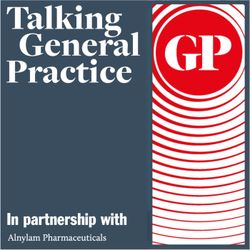
BONUS EPISODE: Understanding genetic kidney risk in South Asian populations - sponsored by Alnylam Pharmaceuticals
12:02||Season 6In this special bonus episode Talking General Practice speaks to consultant nephrologist Dr Shafi Malik about the heightened risk of genetic kidney conditions among South Asian populations.In this conversation, Dr Malik explains why patients of South Asian origin are more at risk of genetic kidney disease and how common these conditions are. He talks specifically about primary hyperoxaluria type 1 (PH1), the symptoms patients might present with if they have this condition - including recurrent kidney stones - and, as kidney stones are a common presentation, how healthcare professionals can recognise when these cases may warrant further investigation.This episode was presented by GPonline editor Emma Bower. It was produced by Czarina Deen.This episode of Talking General Practice has been funded by Alnylam Pharmaceuticals and produced in collaboration with GPonline. It is intended for UK healthcare professionals only.Useful linksThinkPH1.euNational Kidney Federation – PH1About Alnylam PharmaceuticalsAlnylam is a leading biopharmaceutical company and the pioneer in RNA interference (RNAi), a revolutionary approach to treating diseases which “silences” the genes that cause or contribute to them. Founded in 2002 by a group of distinguished researchers and biotech leaders, Alnylam has translated the Nobel Prize-winning science of RNAi into an innovative class of medicines, with the belief that the RNAi approach to treating disease has the potential to help people around the world live longer, healthier and more fulfilling lives.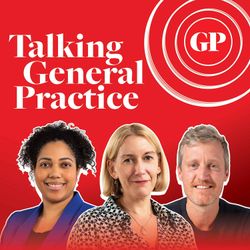
17. Wes Streeting complaint, BMA GP committee split, how GPs are using AI
33:09||Season 6, Ep. 17The GPonline team discusses the ongoing dispute between the government and the BMA GP committee in England after a GP and member of the BMA Council and BMA GP committee reported health and social care secretary Wes Streeting to the Parliamentary Commissioner for Standards for the language he’s used about the BMA in the dispute.They also look at the internal politics at the BMA itself after a member of the GP committee resigned citing concerns about a 'toxic and unbearable' environment.And they talk about AI in general practice, following a report by the Nuffield Trust think tank and the RCGP about how GPs are using new tech and some of the concerns about how it is being rolled out.Our good news story is about a GP who is bidding to become Christmas number 1 with her song song that forms part of a campaign challenging stigma around women’s anatomy and periods.This episode was presented by GPonline editor Emma Bower, deputy editor Nick Bostock and senior reporter Kimberley Hackett. It was produced by Czarina Deen.Useful linksGP makes formal complaint over Wes Streeting behaviour towards BMADoctor resigns from BMA England GP committee claiming it is 'toxic and unbearable’How could 'wider consultation' shape the GP contract for 2026/27?Quarter of GPs use AI but 'wild west' rollout sparks safety fearsViewpoint: How can general practice make best use of AI?Dr Aziza Sesay’s songDownload on SpotifyDownload on Apple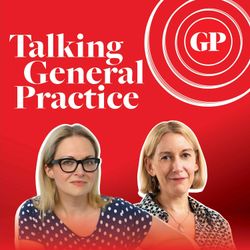
16. Dr Katie Bramall on navigating the GP dispute, future GP contracts and the 10-year health plan
45:32||Season 6, Ep. 16Emma speaks to Dr Katie Bramall, chair of the BMA’s GP committee in England.In this conversation, Katie talks about the current dispute with the government over online access changes. She responds to the recent letter sent to GPs by health secretary Wes Streeting, which accused her of 'unprofessional behaviour' and misleading the profession over contract changes, and explains why she believes trust between the profession and the government has evaporated.Katie also talks about the next steps in the dispute, explaining why there is no immediate plan for a ballot on industrial action, and discusses her concerns about the 10-year health plan and what this could all mean for future GP contracts.This episode was presented by GPonline editor Emma Bower. It was produced by Czarina Deen.Useful linksHow could 'wider consultation' shape the GP contract for 2026/27?Government hails online consultation rollout but ignores impact on practicesTimeline: How general practice re-entered dispute with the governmentGP makes formal complaint over Wes Streeting behaviour towards BMASubscribe to GPonlineIf you’re listening to this podcast, you know how fast general practice is moving.To keep up, you need more than just headlines. A GPonline subscription gives you expert analysis on the latest news affecting general practice and how it impacts on you. A subscription to GPonline also gives you access to MIMS for prescribing information, and MIMS Learning to help you complete your CPD. It’s your daily briefing and your education platform in one.Subscribe now at gponline.com/subscribe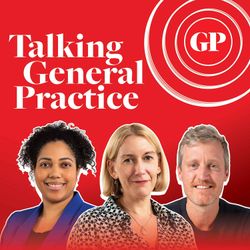
15. Are GPs heading for an imposed contract next year, plus what the budget means for general practice
30:38||Season 6, Ep. 15The GPonline team discusses the key news stories affecting general practice.The team talks about GP contract negotiations after the government confirmed it intended to talk to key stakeholders alongside the BMA as part of putting together next year’s deal - and health and social care secretary Wes Streeting wrote to the profession accusing the GP committee chair of lies and unprofessional behaviour.They discuss this week’s budget and what some of the measures outlined by the government could mean for general practice.And Kimberley talks about an article she wrote recently interviewing a GP who has spent time working in Gaza.Our good news story this week is about patients and a neighbouring surgery rallying around to help a practice that was severely affected by flooding in the wake of the recent Storm Claudia.This episode was presented by GPonline editor Emma Bower, deputy editor Nick Bostock and senior news reporter Kimberley Hackett. It was produced by Czarina Deen.Useful linksUK GP shares her experiences of working in war-torn GazaStreeting accuses BMA GP chair of lies and 'unprofessional' behaviourTimeline: How general practice re-entered dispute with the governmentWhat does the autumn budget mean for GPs?Neighbouring surgery and patients rally round GP practice flooded by Storm Claudia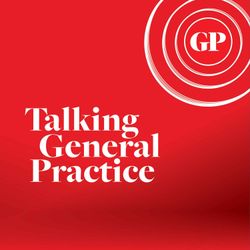
14. Why GP continuity of care matters - and how practices can deliver it
38:44||Season 6, Ep. 14Emma speaks to Dr Luke Sayers, a GP partner and the project lead for continuity of care at North East and North Cumbria ICB, and Dr Tom Kennedy, a GP registrar and ICB clinical fellow, about the importance of continuity of care.Luke and Tom explain why continuity is so vital for both patients and doctors, discussing the evidence that shows it improves patient safety and reduces mortality, as well as the positive impact it has on GP job satisfaction and retention.They discuss the misconception that focusing on continuity negatively impacts access, and they explain why the reverse is often true. They also set out practical steps practices can take to improve and measure continuity, including the use of micro-teams and personal lists, and how this way of working fits into the vision of a neighbourhood NHS.This episode was presented by GPonline editor Emma Bower. It was produced by Czarina Deen.Useful linksBuilding relational continuity of care in your practice - the poster Luke presented at the RCGP annual conference this yearWhat makes general practice work: the role of continuity in efficient and sustainable primary care - the BJGP paper by Professor Tom Marshall that Luke mentions in this episodeContinuity Counts website, which Tom mentions in this interviewValue of GP continuity risks 'slipping from collective memory' - story about the RCGP talk that Emma mentions (on GPonline)
13. Why GPs could 'go nuclear' in escalating dispute, neighbourhood threat, 10 years of GP workforce promises
35:57||Season 6, Ep. 13The GPonline team discusses the key news stories affecting general practice’Nick, Emma and Kimberley look at what went on at last week’s England LMCs conference, including the results of some key votes on balloting the profession on industrial action and the types of action GPs might take. They discuss whether GPs would vote in favour of such measures and some of the other key concerns raised at that conference.Nick explains how the GP workforce has changed over the last decade now we’ve reached the landmark point of having 10 years worth of GP workforce statistics.And Kimberley highlights this week’s good news story which is about a practice in Glasgow whose staff entered this year’s Great Scottish Run.This episode was presented by GPonline editor Emma Bower, deputy editor Nick Bostock and senior reporter Kimberley Hackett. It was produced by Czarina Deen.Useful linksLMCs demand ballot on action including 'full-day walkouts'GP leaders threaten mass resignation from practice contractsBoycott neighbourhoods unless they are GP-led, say LMCsLMCs back 'non-compliance' with online access contract requirementsGovernment accuses GPs of 'standing in the way of change'ARRS driving 'two-tier' GP job market and low pay, warn LMCsHow has the GP workforce changed after 10 years of promises?